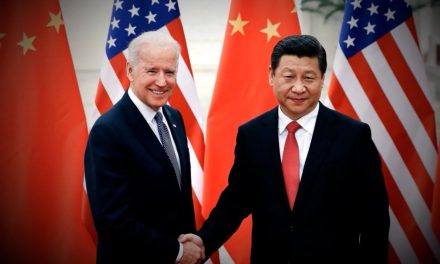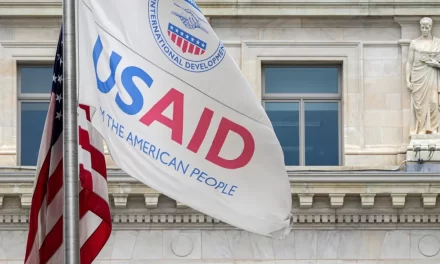BY JIANLI YANG AND AARON RHODES, 04/22/21 7:30 AM ET
President Biden’s virtual Leadership Summit on Climate is meant to counteract what is considered damage to the nation’s environmental image by the Trump administration, and the exercise hopefully will have concrete results for reducing carbon emissions. But by providing China with its own public relations opportunity, the event may well be judged by history as emblematic of the process by which China neutralized not its carbon emissions, but opposition to its human rights atrocities and aggression.
Climate envoy John Kerry laid the groundwork for a U.S.-China rapprochement during his April 18 Shanghai visit, which resulted in a joint declaration to cooperate “to tackle the climate crisis … with the seriousness and urgency that it demands.” The summit will allow Chinese leader Xi Jinping to pose with Biden as a heroic global co-leader in the campaign to save the world from environmental catastrophe.
Xi apparently is happy to share the glory with Biden; it articulates with other efforts to offset negative impressions left by China’s illegal assault on democracy in Hong Kong, threats against Taiwan, and exploitation of small, weak countries caught in China’s debt traps, not to mention Uyghur policies that Biden’s own Secretary of State has termed “genocide.” At an annual Asia forum in Hainan Province, Xi proclaimed, “However strong it may grow, China will never seek hegemony, expansion or a sphere of influence, nor will China ever engage in an arms race.”
He clearly has grasped that coercion, bullying and threats must be balanced with positive messaging. China’s rise to power has been hampered by the regime’s failure to project soft power. Xi’s pledge to reach carbon neutrality by 2060 is intended to project China’s image as a responsible major power, by seizing the high moral ground on climate politics, folding it into the concept of a “community of common human destiny,” which is prominent among his repertoire of platitudes.
But such pledges are patently disingenuous. China is responsible for 29 percent of global greenhouse emissions, almost double what the U.S. emits, and three times what the European Union does. In fact, while the U.S. and Europe have been successfully cutting their carbon footprints to 16 percent and 22 percent, respectively, China’s emissions are on track to increase: Xi’s drive to rapidly increase GDP growth directly pushes industries dependent on energy from fossil fuels to consume even more energy, increasing demand for coal.
To transition to a renewables-based industrial sector would mean up-skilling workers and completely dismantling existing factories. But China’s government has yet to even present a detailed plan of how it aims to bring carbon emissions to zero in the next 40 years. Indeed, the Chinese Communist Party (CCP) cannot fulfil Xi’s environmental promises and remain in power; they would slow China’s growth and lead to the erosion of middle-class support for the regime. The “China model” of governance and growth will continue to depend on the benefit of human rights deficits such as slave labor and environmental degradation, which go hand in hand. Only democratic reform will allow China to end those practices — and that ought to be the main goal of any government concerned about climate change. Given China’s abysmal environmental record, Xi’s gesture appears little more than a cynical bid for appeasement by world leaders, banking on the premise that America and other major democracies are more worried about pollution than freedom, human rights and democracy in China and around the world.
While Biden hopes to compartmentalize the issue of climate change, cooperating with China in this area while confronting, containing and competing with China in other areas, in effect the issues are being solidly linked. Pressure to respect fundamental human rights will be relieved in order to obtain largely empty environmental promises. In the lead-up to the event, Xi met with the leaders of France and Germany, honing China’s political-environmental wedge against U.S.-led efforts to constrain Chinese subversion.
The Leadership Summit, while renewing efforts to reduce pollution, thus poses grave dangers to the Biden administration’s legacy and to world peace. The free world will have abdicated its moral responsibility, and failed to protect vulnerable groups and societies, if it appeases China in return for meaningless environmental promises.





















